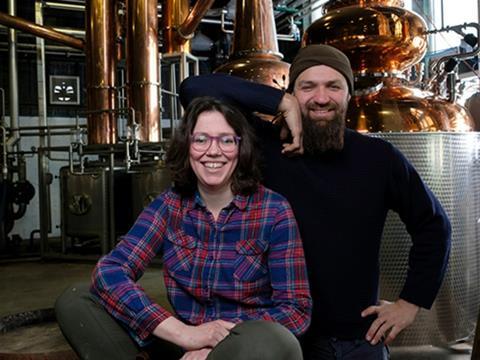
Arbikie Distillery, Edinburgh Napier University and the University of Dundee have collaborated on the MycoPack project, which aims to use distillery by-products like spent grain to create compostable packaging.
Arbikie Distillery has partnered with Dr Dongyang Sun from Edinburgh Napier University and Dr. Wenbin Zhou from the University of Dundee to use mycelium (the root structure of fungi) and distillery by-products like spent grain to create durable, lightweight packaging. The material created is apparently impact-resistant, fire-retardant and fully compostable, offering an alternative to plastic.
Over the next 10 months the project team will focus on proof of concept, testing the material and the design. Funded by Scotland Beyond Net Zero – a coalition of climate and sustainability experts from Scotland’s universities – the project is one of 11 new research collaborations aimed at accelerating Scotland’s transition to net zero. Each project involves cross-sector collaborations to address sustainability challenges in energy, finance, food, the built environment, natural systems and transport.
Professor Nick Forsyth, chair of Scotland Beyond Net Zero’s seed fund panel, said: “This is the second round of our seed fund, and we have now supported 19 innovative and collaborative projects with a total of around £300k of funding. We cannot achieve these targets in isolation - we must work together to innovate, inform and adapt.”
In similar news, the European BIOSUPPACK project says it has developed a compostable, renewable material from brewer’s spent grain that can replace conventional polyolefins and be used to develop new thermoplastic materials and coatings for packaging in the food, cosmetics, and household cleaning sectors. The project consortium consists of 17 partners from 7 different European countries, funded by the European Union’s Horizon 2020 research and innovation programme and the Bio-Based Industries Consortium.
The following month Krill Design revealed its ReKrill biopolymer derived from resources including citrus peels, coffee grounds, wine residues and bran. It is said to be 100% recycled, biodegradable and aims to offer the same technical reliability as traditional plastics.
If you liked this story, you might also enjoy:
The ultimate guide to the Packaging and Packaging Waste Regulation in 2025
How are the top brands progressing on packaging sustainability?
Everything you need to know about global packaging sustainability regulation in 2025
The key to increasing the use of reusable packaging in supermarkets














No comments yet